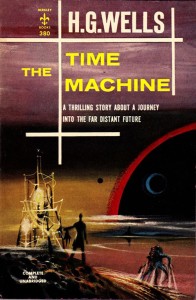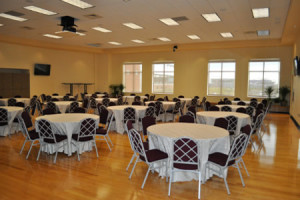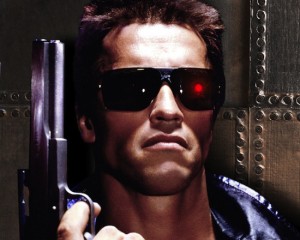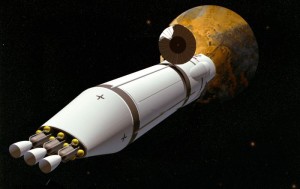 An interesting and well-written article at NBC news discussed the recent discovery of earth-like planet Kepler 452b, sometimes dubbed, “Earth 2.0.”
An interesting and well-written article at NBC news discussed the recent discovery of earth-like planet Kepler 452b, sometimes dubbed, “Earth 2.0.”
http://www.nbcnews.com/science/space/could-human-beings-ever-reach-earth-2-0-n399956
Apparently, Earth 2.0 is rocky, moderate in temperature, and could harbor liquid water. It might even have an atmosphere. Unfortunately for would-be travelers, it’s 1400 light-years away. Traveling at the speed of the recent New Horizon craft that photographed Jupiter, it would take 28 million years to get there. That’s awkward, because as a species, we have only been alive on this planet for one one-hundredth of that time.
Better engines could conceivably achieve 5% the speed of light, cutting travel time down to 28,000 years, but that’s still longer than the entire history of human civilization. That long ago, we hadn’t even invented farming yet.
This is the problem of space travel. The distances are vast, travel times are long and the hazards great. We are slow-moving, fragile monkeys who live only a hundred years. Interstellar space exploration is simply beyond our reach.
Sci-fi writers traverse this impasse by inventing fantastic ships and engines such as Star Trek’s warp drive, or by exploiting exotic physics, such as wormholes, which could only be accessed if you flew directly into a supernova or a black hole, obliterating yourself. There is no realistic scenario in which interstellar space travel will ever be feasible. Under prevailing assumptions, anyway.
But what if we re-think our assumptions? Travel is moving the human body from one spatiotemporal location to another. Why do we want to do that? To explore, to perceive and understand new worlds. Schlepping the meat around is not the goal. That’s only an unfortunate necessity. So don’t focus on that.
What we really want is to perceive and understand. Can we do that without transporting biological units over space and time? We already have done so, which is how we know about Earth 2.0. We have perceived and understood and haven’t even left home (by much – Kepler is in nearby orbit).
Exploration mainly involves juxtaposition of the sensory systems with an environment, then mental processing to find meaning in the resulting sense data. If the senses are supplemented with instruments, such as eyeglasses, radio antennae, microscopes, and telescopes, so much the better.
But there are limits to sensory exploration when the environment of interest is 1400 light years away. Since we can’t go there, what else can we do? We can add imagination to our kit of exploratory tools. Why does exploration have to be only sensory? Humans have the gift of a fantastic imagination. Why not use it?
I propose a new kind of interstellar voyaging called “arrive-only” travel. You never leave home, but you do arrive there, using your imagination, constrained by whatever sense-data you have. In other words, we deploy our best science-fiction writers to imagine arriving in the new world and the experiences we would have there.
Traditionalists object, “That would be made-up stuff, not exploration but imagination.” But is that a clear distinction? Anyone who has studied perception can argue that most of what we perceive is mentally synthesized (e.g., Noe’s Action in Perception) and any epistemologist who has delved into the foundations of empiricism can demonstrate that objectivity is socially constructed (e.g., my Scientific Introspection).
Perception and exploration in general are already products of the imagination. Most people don’t realize that because they are strait-jacketed by presumptions about objectivity, truth, facts, perception, representation, absolutism, and many more unexamined assumptions about the relationship between mind and world.
We are unable to accomplish interstellar travel because we have too-tight constraints on our thinking about it. Once we reformulate our ideas, we can enjoy the benefits of arrive-only travel, which does not require moving hamburger over impossible distances. The speed of thought is faster than the speed of light. The barriers to interstellar exploration are removed!
I know, you’re thinking, that wouldn’t be the same — imagination versus “the real thing.” But that objection misses the point. The “real thing” is already imagination! I’m just proposing adjusting some parameters. However, I realize that most people are so deeply, irretrievably committed to biological embodiment that this idea cannot be understood.
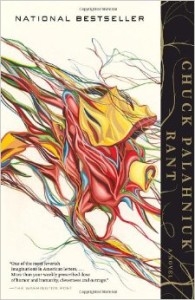 I recently reviewed on this site, Palahniuk’s Rant: An Oral History of Buster Casey, which I liked enough to consider nominating it for group study, but I hesitated because it’s so vulgar: both puerile and prurient. A long-running joke, repeated a dozen times, is about how a sensitive person, after performing cunnilingus, can tell what the woman has eaten over the last three days, right down to which brand of ketchup she used on her French fries. In one variant of the joke, the linguist, so to speak, warned that the vagina indicated very high cholesterol. The joke was funny the first time because of its outrageous originality. I’m not above prurient humor. But it wasn’t funny enough to retell so many times. Rather, it became a writerly tic, vulgarity for the sake of vulgarity. Likewise, the recurring rape theme in the novel seemed gratuitous.
I recently reviewed on this site, Palahniuk’s Rant: An Oral History of Buster Casey, which I liked enough to consider nominating it for group study, but I hesitated because it’s so vulgar: both puerile and prurient. A long-running joke, repeated a dozen times, is about how a sensitive person, after performing cunnilingus, can tell what the woman has eaten over the last three days, right down to which brand of ketchup she used on her French fries. In one variant of the joke, the linguist, so to speak, warned that the vagina indicated very high cholesterol. The joke was funny the first time because of its outrageous originality. I’m not above prurient humor. But it wasn’t funny enough to retell so many times. Rather, it became a writerly tic, vulgarity for the sake of vulgarity. Likewise, the recurring rape theme in the novel seemed gratuitous.
